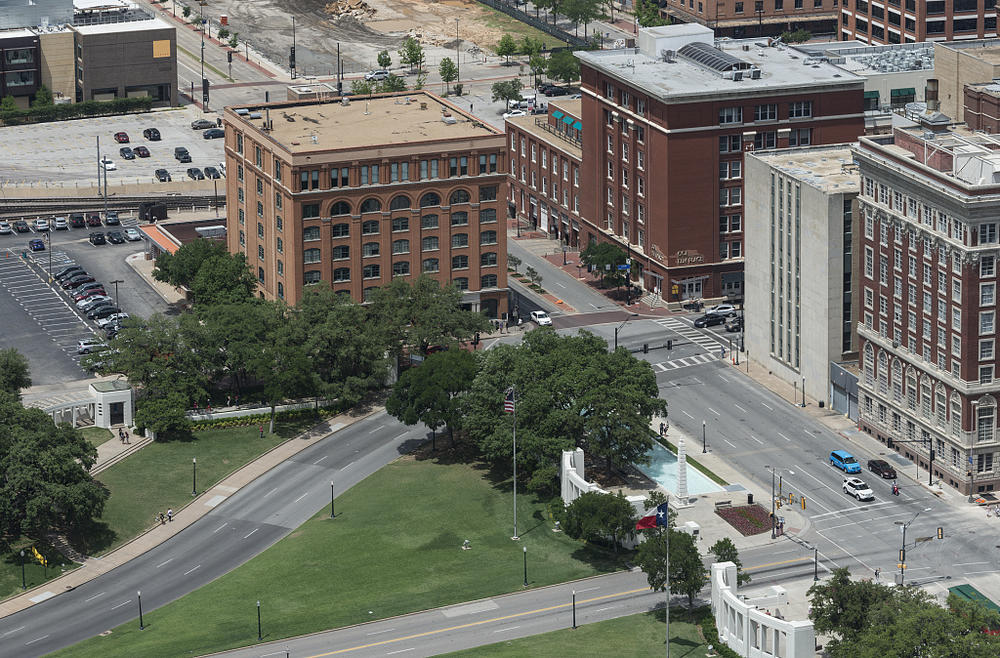
Caption
View, in 2014, of Dealey Plaza and the Texas School Book Depository in Dallas, Texas, where Lee Harvey Oswald, the presumptive assassin of President John F. Kennedy, found a perch above the plaza on Nov. 22, 1963.
Credit: Public domain

